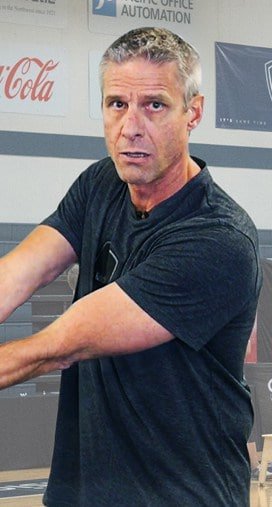Coaches come in all personality types, with a vast variety of strategies. But they all have one thing in common: imperfection. They are human, after all, and so the fact remains clear: your child will never play for a perfect coach.
My kids played for scores of coaches throughout my 21 years of being a sports parent, and I believe that these keys to understanding your child’s coach will help you deal with conflict and make the difficult season more tolerable.
Remember that a coach who has his own child on the team will struggle with objectivity.
Being a parent AND a coach is difficult. The coaching parent may be too hard on his child to prove his impartiality or he might play his child more than others who are better athletes because he’s wearing rose-colored glasses when it come’s to his child’s abilities.
It boils down to one simple question: is the coach/parent willing to do what is best for the team, not what is best for his child?
Coaches may say pre-season remarks that don’t ring true during the season.
My kids heard a few pre-season speeches that meant nothing. For instance, one coach said, “I’m counting on you to be a real leader on the team” and then my child barely played at all.
I believe that most coaches are not intentionally being insincere just to get another body on the team. Perhaps the coach truly does see potential in your child, or maybe he or she has a strategy that includes your child, but then changes the strategy in the season.
Either way, the fact remains that no matter what the coach promises before the season, your child still has to earn his playing time as an older player. If the unkept promises were made to young players who should get equal playing, then it might be time to ask the coach to explain his pre- season remarks.
Coaches do not always make sense.
At times, you may question the coach’s knowledge of the game or disagree with the play-calling. But remember, what you see from the bleachers may not match what the coach sees from the sidelines. It may look like he or she is not making any sense at all, but you can be sure there the coach has reason for his or her decisions. Your child’s coach spends hours with the kids in practice, and knows his players very well.
Coaches may treat athletes differently.
It became obvious to me at my daughter’s volleyball games in her senior year that her chewed on some players more than others, my daughter being one of them. It didn’t seem fair to me, so I asked my husband, who has coached for 27 years, what he thought. He explained that good coaches sense how much an athlete can be pushed. Coaches often demand more of kids who they know can do better and leave others alone who they feel have already peaked. Helping your child understand this will make it bearable for him.
If you feel your child has been labeled by the coach, whether in a good or bad way, encourage him or her to ignore the coach’s labels and focus instead on working hard and improving. I don’t believe coaches do this to be unfair; they may do it because it’s how they organize the team in their heads before they know the kids.
If your child has a negative label such as “lazy kid,” “weak hitter” or “slow,” he or she may have to work hard to change that label. If your child has a positive label such as “good athlete,” “fast” or “strong leader,” he or she will have to work hard to earn and keep the label throughout the season.In either case, the key is for your child to ignore the label and focus his or her game.
Not all coaches have these behaviors. But I’m pretty sure you will encounter all of them if your child plays sports for awhile. Learning to understand your child’s coach will go a long way to making youth sports a positive experience for you and your child.


